Eleven Adelaide Bush Walking Club hikers, led by the amazing and well organised Jules, gathered at the Flinders Chase Visitor Centre. Boots were laced and packs loaded, ready to take on the Kangaroo Island Wilderness Trail — a 66-kilometre journey through one of South Australia’s most beautiful landscapes.
Before setting off, we met with a park ranger for a briefing that informed us about the campsites and the land we were about to traverse. The ranger spoke of the devastating 2019–2020 bushfires, which scorched approximately 96% of Flinders Chase National Park. The scale of destruction was hard to fathom, but the trail would show us how the bush, in its quiet determination, has begun to regenerate.
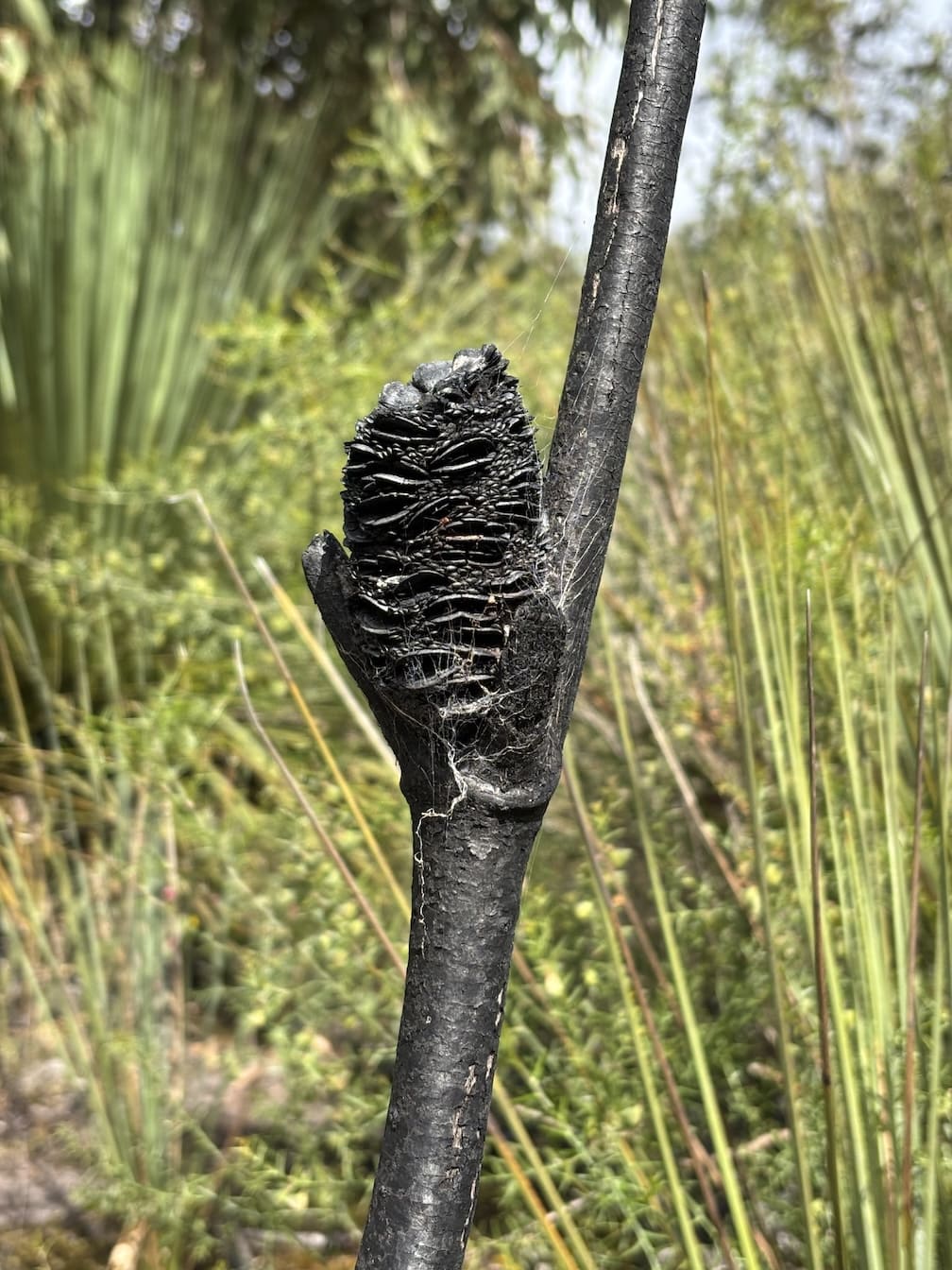
Over the five days, we walked through blackened eucalypt trunks, their charred bark now fringed with vibrant green shoots. Beneath them, a new shrub and ground layer was emerging — orchids, yaccas, hakeas, banksias, tea trees and mallees pushing up through the ashen ground. The resilience of the Australian bush astonished us; however, our enthusiasm was peppered with knowledge that it will take decades for the bush to return to full habitat function and structure.
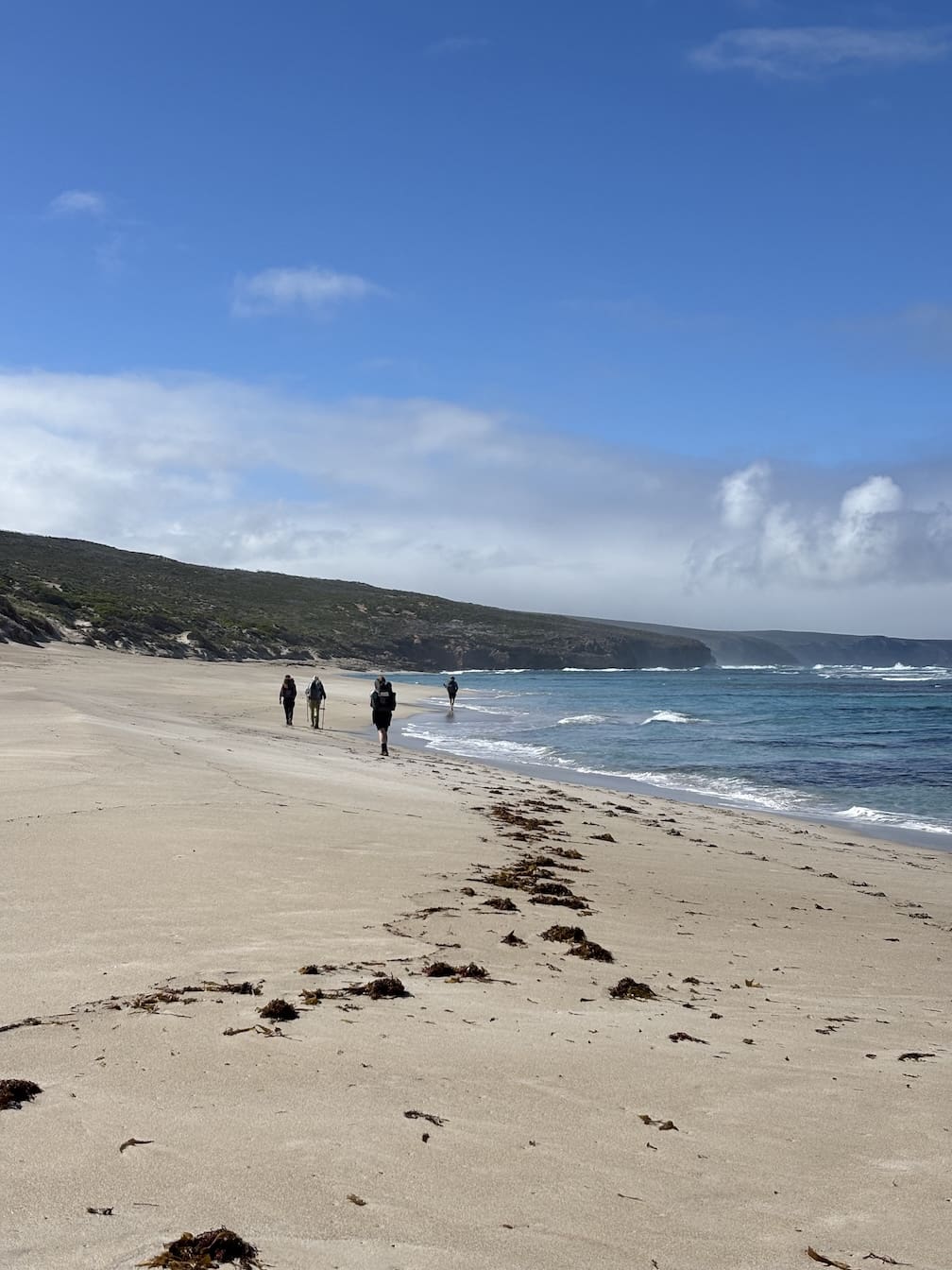
The trail itself was full of contrasts. Dense eucalypt woodlands, wild and rugged coastline, long stretches of beach, spectacular granite boulders and magnificent caves. The October floral display was breathtaking – golden wattle, daisy bush, scarlet bottlebrush, pig face, correa, yacca and magnificent orchids were just a few of the many species in bloom.

Along the way we witnessed abundant birdlife – herons, pied oystercatchers, spoonbills, ducks, honeyeaters, wrens, pardalotes, birds of prey and bursts of colour from parrots to mention but a few.
On land, we spotted goannas, kangaroos, possums, echidna and even a koala munching on gum leaves. Unfortunately, we too discovered that the platypus is every bit as elusive as they say!!
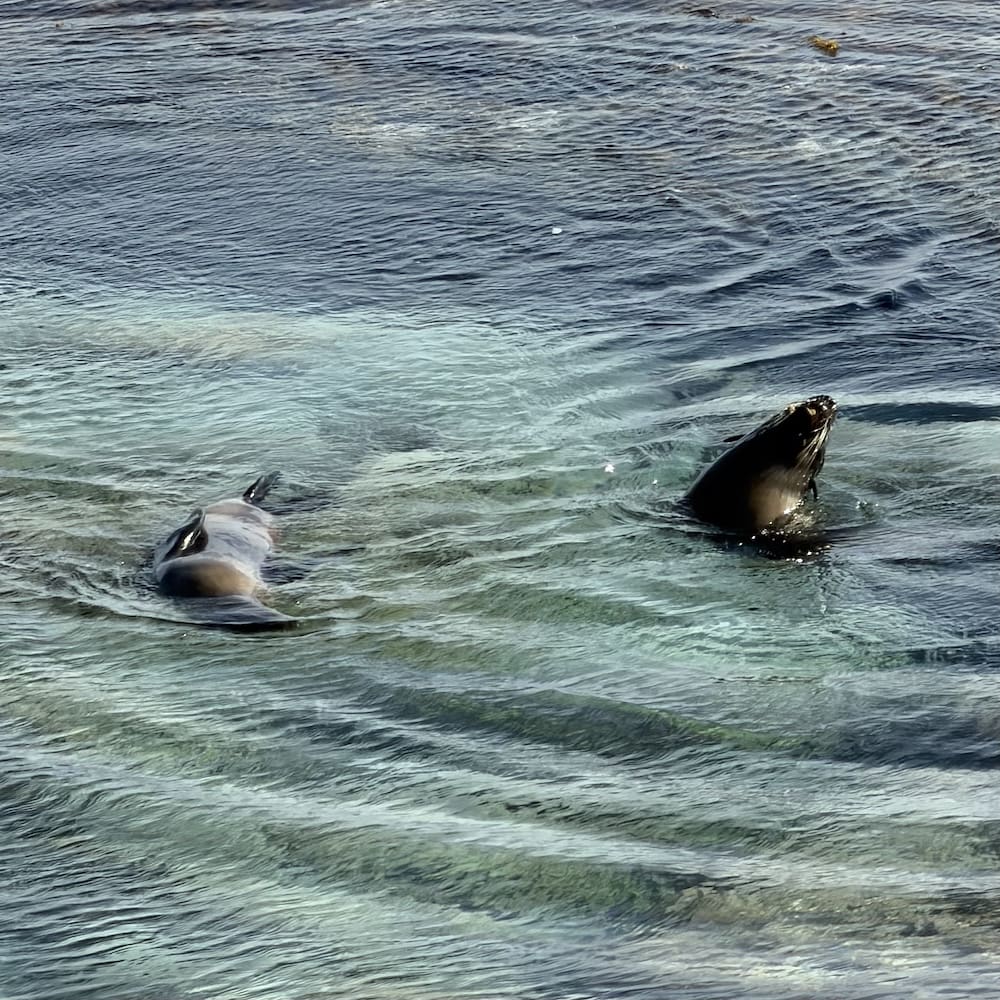
Among the many highlights, one came on the third day when, after setting up camp, we explored the secluded Sanderson Bay. Here we watched in wonder as two seals played in the shallows, seemingly unfazed by our quiet presence. Some members of our group braved the cool waters for a refreshing surf and then demonstrated their creativity onshore by building a makeshift sailboat from driftwood. It was a moment of relaxation and fun in a very special place.
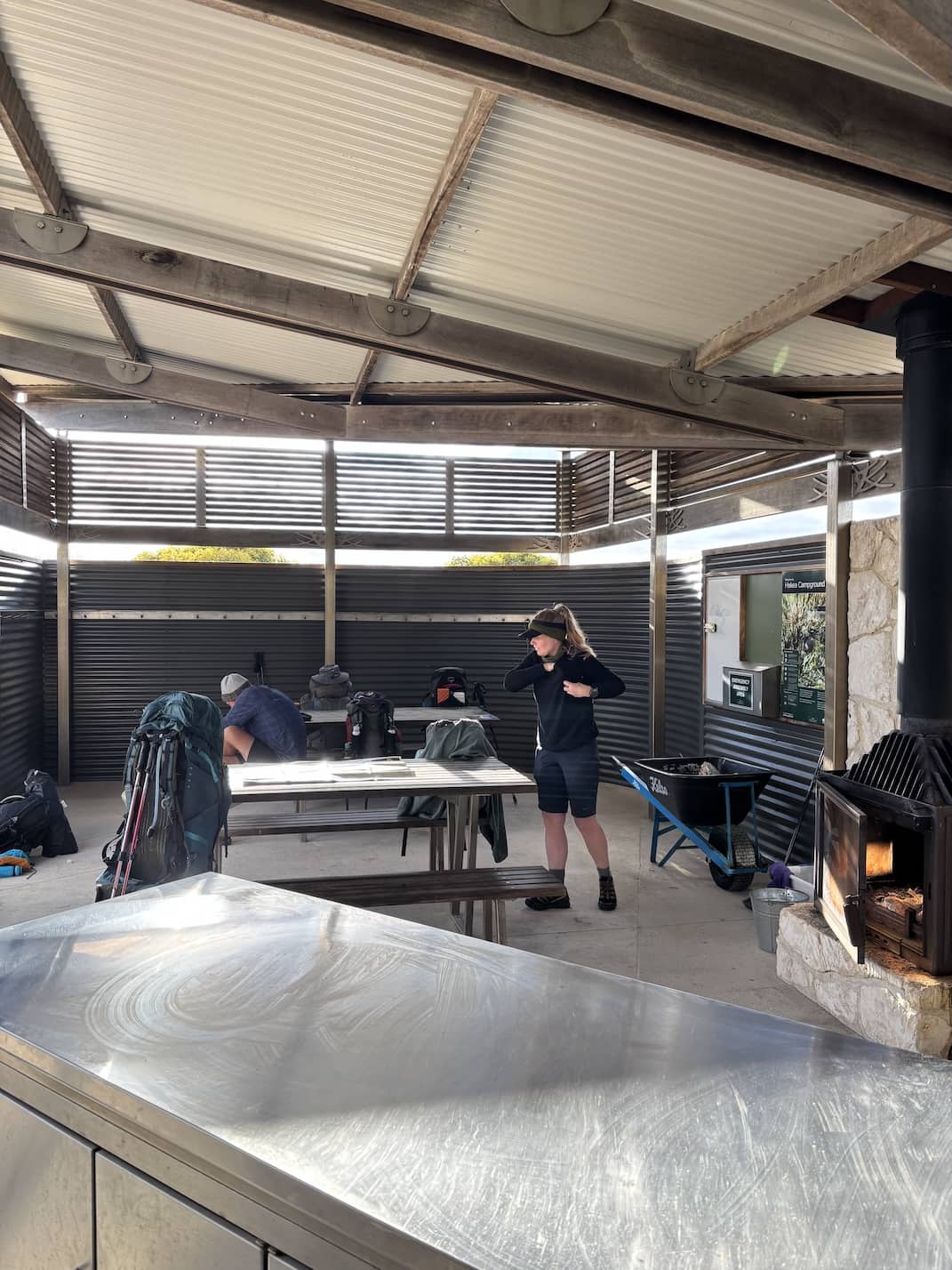
Each night, we arrived at well-provisioned campsites named after local flora — Cup Gum, Hakea, Banksia, and Tea Tree. These sites offered platform-based tent pads, toilets, shelters with tables and chairs, fireplaces, running water, and sinks. After long days on foot, they felt like small sanctuaries. Around the evening fires, we shared numerous hiking experiences on near and far lands. On a couple of occasions, Jules skilfully guided hiking discussion, helping us to exchange insights and learn from one another. These discussions proved to be very helpful to us all.
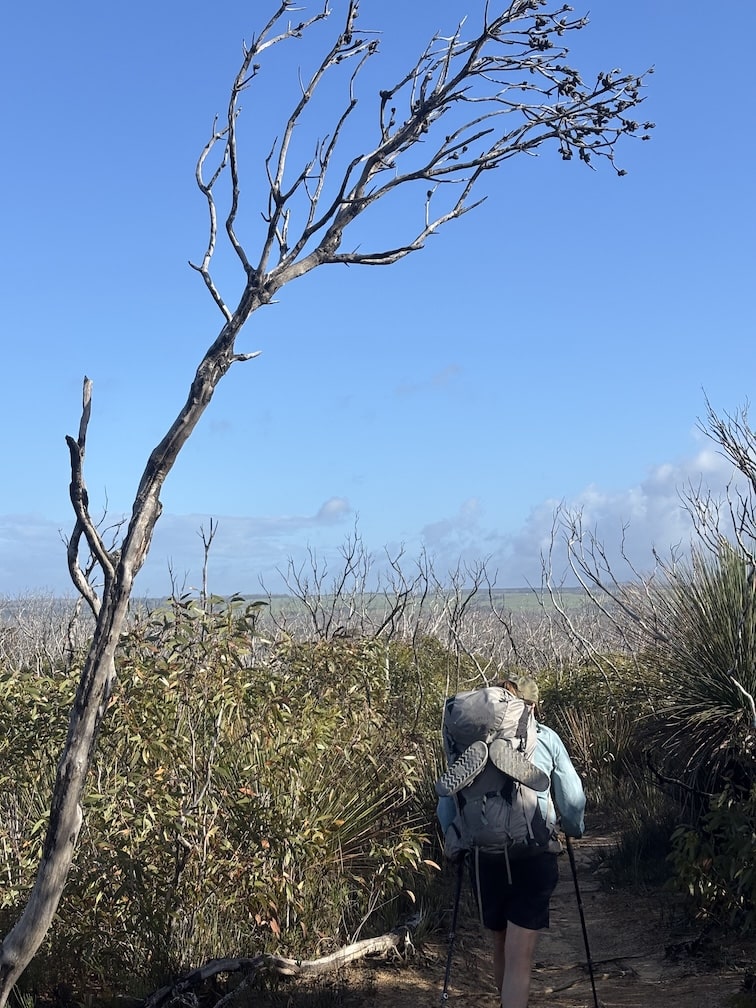
On the final day, we closed the loop with a tour of the Kelly Hill Caves, descending into limestone chambers that offered a different kind of wonder — ancient, cool, and untouched by fire. It was a fitting end to our journey.
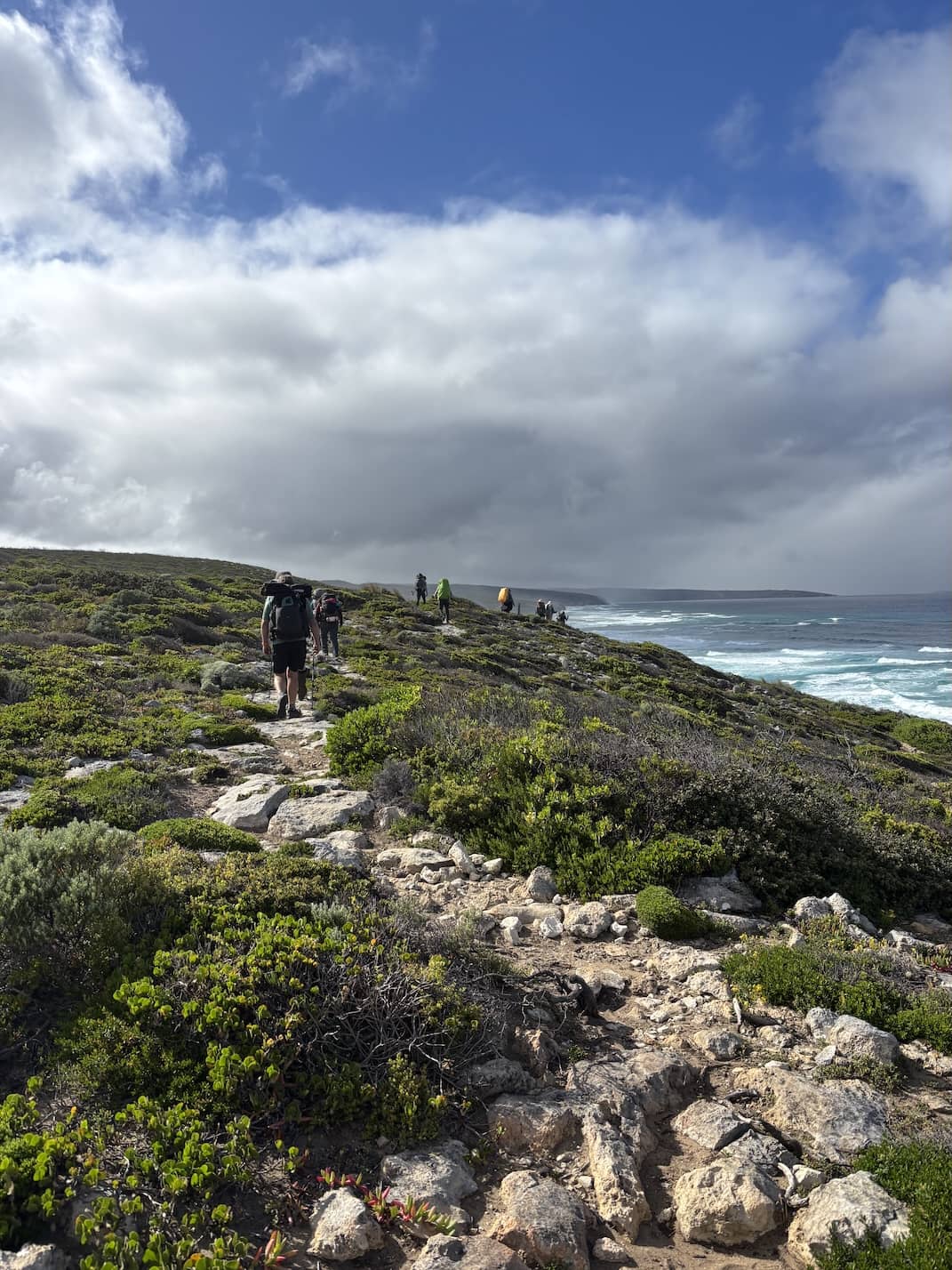
Final thoughts: There were plenty of highlights: the surreal forms of Remarkable Rocks silhouetted against the sky, the roar of the Southern Ocean and the beauty of the Kelly Hill Caves. But best of all, the trail let us experience a recovering landscape and the quiet resilience of nature, giving hope to what the future may hold.
As always, the true magic of a hike lies in the company you share it with. On our walk, some were longtime friends while others had only just met, yet the rhythm of the trail soon forged lasting bonds. With these connections made, there is a promise of meeting again on future trails to continue the journey again.
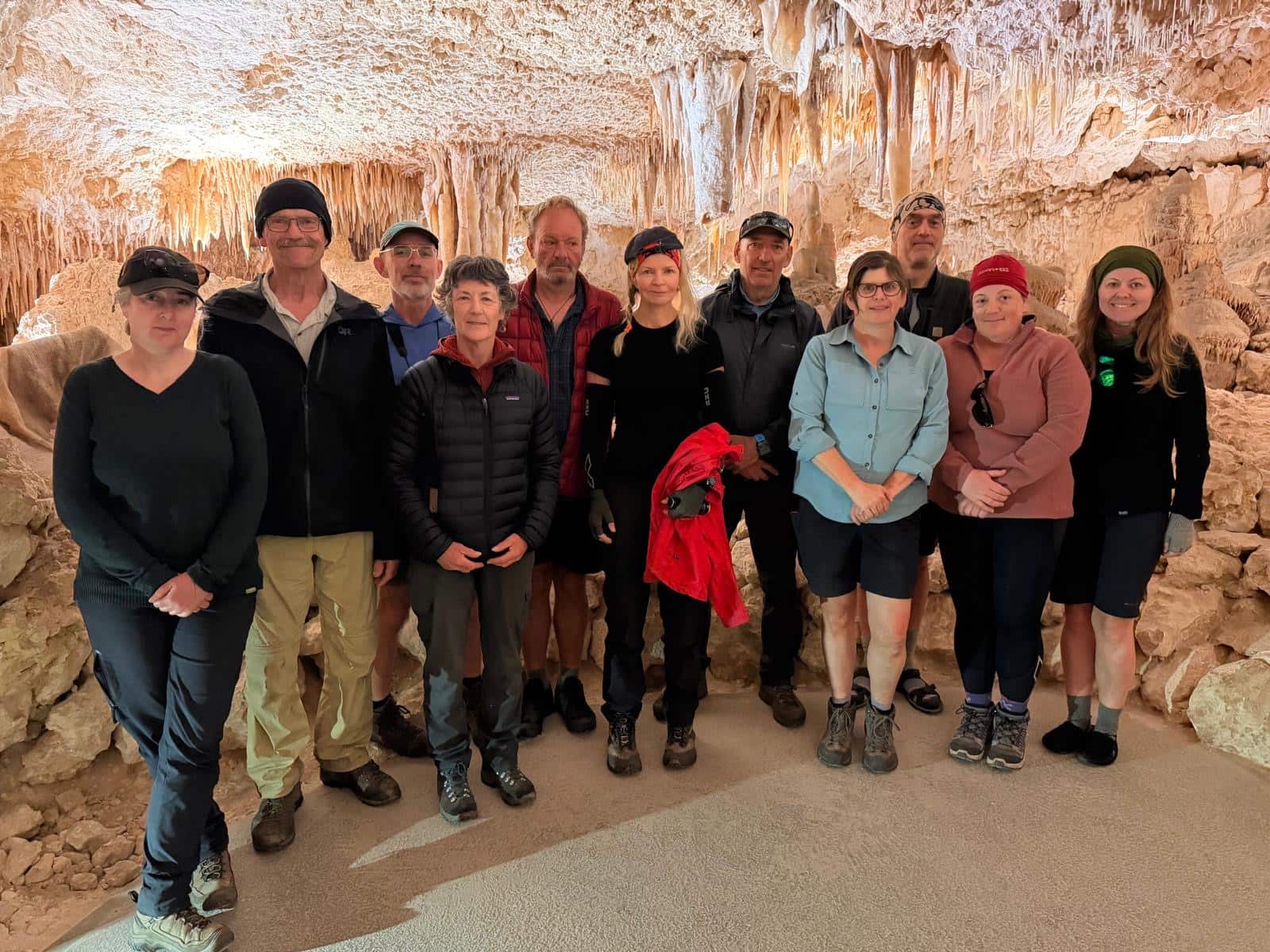
Next Article: Obituary for Kat Jensen


Comments (0)